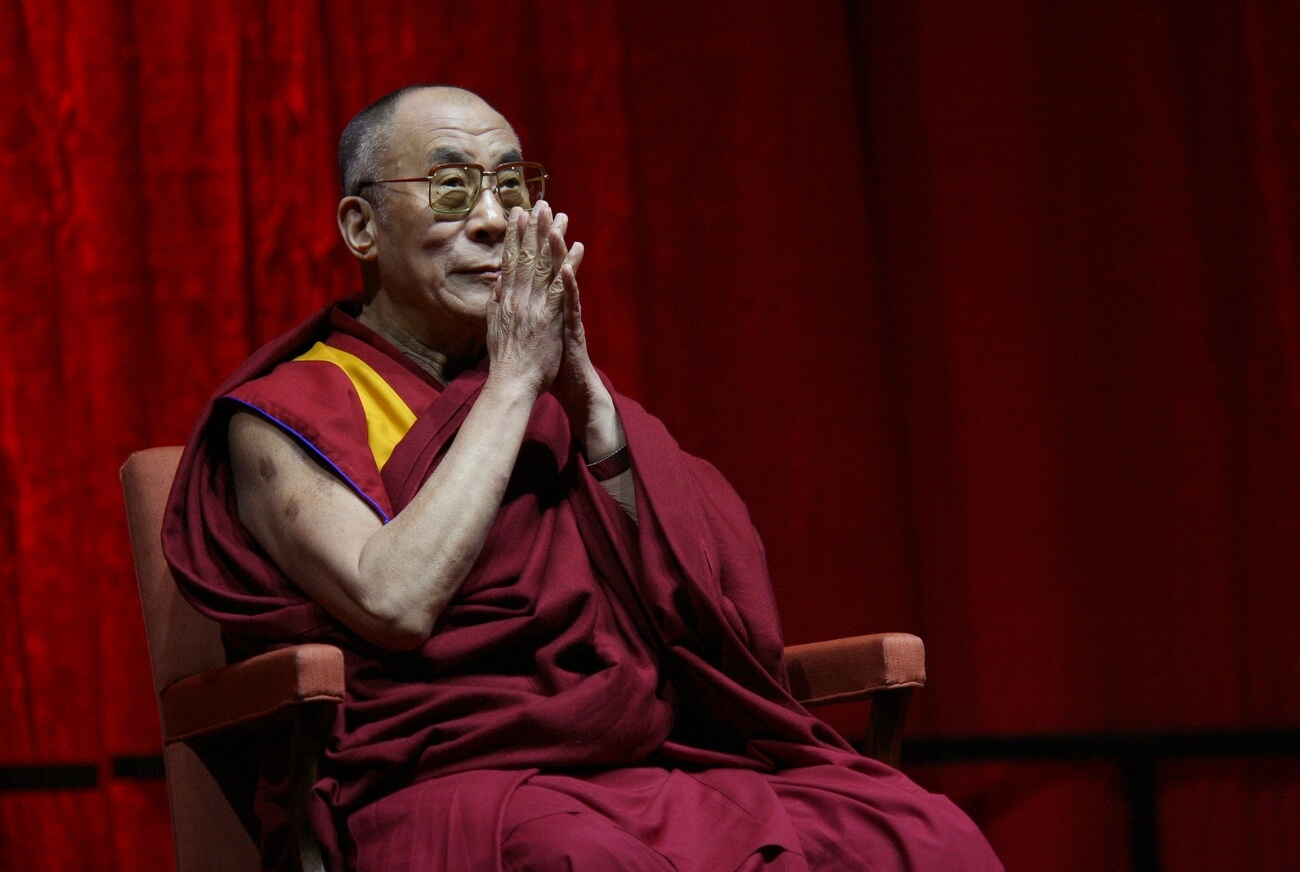In a quest to reclaim its Buddhist heritage, India hosted its first three-day International Sangha Forum – an “assemblage” of Buddhist monks and nuns — on Wednesday.
The Dalai Lama led the Sangha, and the Chief Minister of the Indian state of Arunachal Pradesh, an area claimed by Beijing, shared the stage with him.
The international congregation was held in Bodhgaya in Bihar, where Buddha is believed to have attained enlightenment. Besides the representatives of the Buddhist communities in South and Southeast Asian countries, a representative of Taiwan was also present at the conference.
The Tibetan Buddhist leader has been in the eye of the storm between India and China as the 88-year-old spiritual leader, who leads Tibetan Buddhism, fled Tibet in 1959 following annexation by Beijing and has been living in exile in India ever since.
Beijing accuses the Dalai Lama of being a separatist. It asserts that the Communist Party China, itself an atheist organization, has the sole right to name the next incarnation of the Dalai Lama and has enshrined it into the country’s law.
The Dalai Lama and the Tibetan parliament in exile, with its seat in Dharamshala, have rejected the Chinese claim. Penpa Tsering, the president of the parliament-in-exile, has stated earlier: “A non-believer, atheist government like China interfering in Tibetan spiritual matters is a complete no-no. It cannot be accepted. The world has turned against China. We firmly believe no one will trust their choice.”
China hopes to repress the Tibetan separatist movement by controlling the religious leadership of the Tibetan Buddhists. The increasing age of the Dalai Lama has further given rise to the tension over his successor. The Dalai Lama has insisted that speculations of his death are premature as, according to his visions, he will live to 113.
The Dalai Lama insists he will start working on his succession after turning 90. And has even suggested probable changes from the traditions to help in the process. The first departure is that he will be reborn as a child but outside Tibet. The other option takes on the Buddhist concept of “emanation” and suggests the possibility of the Dalai Lama appointing a living successor before he dies.
The experts on the tensions between the two countries believe that when the 14th Dalai Lama dies, there will be two successors in his wake – one nominated by China and the other left behind by the Tibetan spiritual leader.
What could further muddy the water is the possibility that the likely successor of the Dalai Lama could be in India, as the octogenarian spiritual leader insists that he could be reincarnated in a “free country,” likely to be India rather than Tibet.
The geopolitical importance of the Dalai Lama is not lost on other countries as well. A few years ago, the US revised its Tibet policy to acknowledge that only Tibetans had the right to select the next Dalai Lama.
“One shouldn’t lose sight of the strategic dimension of Buddhism. China sees a great advantage in employing Buddhism alongside its hard power pursuits, especially to seek political and economic leverage. Cultural tools also seem embedded into China’s latest One Belt One Road initiative in Asia,” P. Stobdan, a former ambassador and a scholar of Asian affairs, wrote earlier.

After Guns Comes Peace
The Narendra Modi government, in its earnest to forge a deeper relationship with China, maintained a studied distance from the Buddhist spiritual leader, who lives in the quaint Himalayan town of Dharamshala. However, since the Galwan clashes in 2020, the Line of Actual Control (LAC) between India and China has come alive, with the armies of the countries engaging in violent and bloody skirmishes with alarming regularity.
In light of the new paradigm in the India-China relationship, the Modi government closed the gap his administration maintained with the 14th Dalai Lama. He greeted the Dalai Lama on his 87th birthday on July 6, riling up China. As expected, Beijing reacted sharply and said India “needs to fully understand the anti-China and separatist nature of the 14th Dalai Lama.”
It is only fitting that the 2023 International Sangha will discuss “Bridging Traditions, Embracing Modernity: A Dialogue on the Buddha’s Teaching in Today’s World.” So far, India has lacked any credible institution for espousing Buddhism or a traditional ‘Sangha,’ which is indeed a travesty for a country where Buddhism was born and later spread to other countries.
China has, in recent years, hardened its stance on the border dispute with India and has even responded to the Indian overtures with aggression. Hence, the Indian government, which essentially controls the movement of the Dalai Lama both domestically and internationally, is using its presence in India for strategic messaging.
In line with this, India, in August 2023, organized the 6th Uyghur freedom fighter conference in New Delhi. The meeting, a part of the International Tibetan Freedom Movement, was also attended by the members of the Tibetan government and the Parliament in Exile.
The conference was also attended by former Indian Army Chief General MM Naravane, whose soon-to-be-released book “Four Stars of Destiny” gives a riveting account of the 2020 Galwan clashes. The clashes were a turning point in the bilateral ties between the two countries, and since then, it has nothing but spiraled down.
While sharing the stage with “Geshe Lharampa Bawa Lobsang, representative of the Tibetan Parliament in Exile, and Umit Hamit, a noted Uyghur freedom fighter,” General Naravane posted on X: “Freedom is the birthright of all.”
Speaking to the EurAsian Times, General Naravane said after the conference: “We need to respect individual freedoms. It was Tibet, which was our rightful neighbor and not China. With the forceful occupation of Tibet, their rights have been suppressed. The present and future generations of Tibetans must be able to keep their culture alive.”
- Ritu Sharma has been a journalist for over a decade, writing on defense, foreign affairs, and nuclear technology.
- She can be reached at ritu.sharma (at) mail.com
- Follow EurAsian Times on Google News




